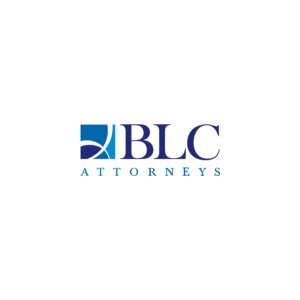Best ADR Mediation & Arbitration Lawyers in Port Elizabeth
Share your needs with us, get contacted by law firms.
Free. Takes 2 min.
List of the best lawyers in Port Elizabeth, South Africa
South Africa ADR Mediation & Arbitration Legal Articles
Browse our 1 legal article about ADR Mediation & Arbitration in South Africa written by expert lawyers.
- Resolving Cross-Border Commercial Disputes in South Africa
- Mandatory Consideration: Uniform Rule 41A requires all litigants in the South African High Court to consider mediation before proceeding to trial, making it a standard step in cross-border disputes. Enforceability: Settlements reached through mediation can be made an order of the court, giving them the same legal weight and enforcement... Read more →
About ADR Mediation & Arbitration Law in Port Elizabeth, South Africa
Alternative Dispute Resolution (ADR), including Mediation and Arbitration, provides an alternative avenue from traditional courtroom litigation for resolving legal disputes in Port Elizabeth, South Africa. Mediation involves a neutral third party, the mediator, who encourages and facilitates communication between the disputing parties to reach a mutually acceptable resolution. Arbitration is a formal process where disputes are resolved by an appointed arbitrator whose decision is typically binding. The South African Law promotes the use of ADR as a cost-effective and rapid means of resolving conflicts.
Why You May Need a Lawyer
Despite ADR providing a more relaxed setting than courtroom litigation, you may still require legal advice. For example, a lawyer can assist with negotiation strategies during mediation, clarify disputed legal matters, and advocate for your interests during arbitration. Lawyers are especially essential in situations involving complex legal issues, substantial financial stakes, or where one party seems to have a significant advantage over the other.
Local Laws Overview
ADR in South Africa is guided by several acts and regulations such as the Arbitration Act 42 of 1965, which governs the arbitration process. The Courts of Law Amendment Act 7 of 2017 further endorses the use of court-annexed mediation. South Africa's Constitutional Court also recognizes the importance of ADR in promoting transitional justice. With ADR, legal principles such as fairness, equity, and justice are paramount.
Frequently Asked Questions
1. Is ADR legally binding in Port Elizabeth?
Yes. The resolution attained through arbitration is generally binding by law. Mediation is not necessarily legally binding, but if a mutually acceptable agreement is met, it can be made legally binding.
2. What type of cases are suitable for ADR?
Almost any non-criminal dispute can be resolved through ADR, including contract disputes, commercial disputes, landlord-tenant disputes, and family matters.
3. Is legal representation necessary during ADR processes?
Legal representation is not a requirement, although considering the potential complexities of the processes and the importance of protecting your interests, it is often advisable.
4. How long does the ADR process typically take?
The length of the process varies depending upon the complexity of the case, the availability of the parties involved, and the method of ADR used, among other factors.
5. Do I have to pay for ADR services?
Yes. Fees vary depending upon the service provider, the complexity of the dispute, and the length of the process.
Additional Resources
Organizations such as the Arbitration Foundation of Southern Africa (AFSA), South African Medico-Legal Association (SAMLA), and the Legal Resources Centre can provide support and resources for ADR. Information on the practical application of ADR can also be found in South Africa's Law Libraries and Legal Information Institutes.
Next Steps
If you need legal assistance with ADR, consider consulting with a legal practitioner experienced with ADR. They can help you understand your legal rights and obligations, provide advice tailored to your unique circumstances, and guide you through the necessary processes. Importantly, choose a practitioner who understands and respects your preferences and strategies for resolving your dispute.
Lawzana helps you find the best lawyers and law firms in Port Elizabeth through a curated and pre-screened list of qualified legal professionals. Our platform offers rankings and detailed profiles of attorneys and law firms, allowing you to compare based on practice areas, including ADR Mediation & Arbitration , experience, and client feedback.
Each profile includes a description of the firm's areas of practice, client reviews, team members and partners, year of establishment, spoken languages, office locations, contact information, social media presence, and any published articles or resources. Most firms on our platform speak English and are experienced in both local and international legal matters.
Get a quote from top-rated law firms in Port Elizabeth, South Africa — quickly, securely, and without unnecessary hassle.
Disclaimer:
The information provided on this page is for general informational purposes only and does not constitute legal advice. While we strive to ensure the accuracy and relevance of the content, legal information may change over time, and interpretations of the law can vary. You should always consult with a qualified legal professional for advice specific to your situation.
We disclaim all liability for actions taken or not taken based on the content of this page. If you believe any information is incorrect or outdated, please contact us, and we will review and update it where appropriate.








